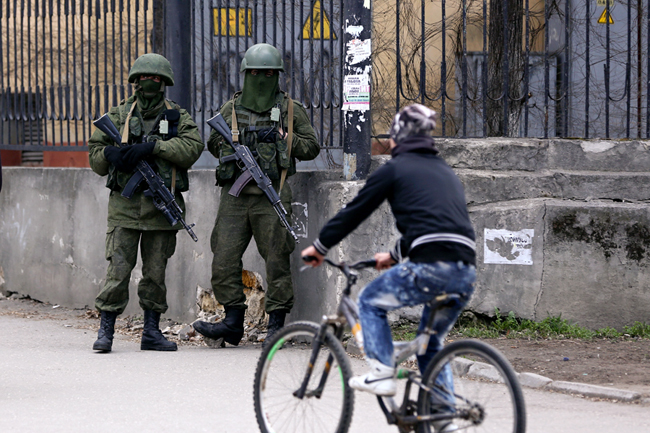Political conflict in Eastern Europe has not only affected Russia’s relations with the West, but also UT summer study abroad programs in the region.
Russian Express, a language and culture program that has students spend four weeks in Kiev, Ukraine and four weeks in Moscow during the summer, was forced to move the location from Ukraine three weeks ago after political unrest erupted in the country, according to Elliot Nowacky, administrator and resident director for the program.
The 11 students participating in Russian Express selected Irkutsk, Russia, located in Siberia, as the new destination, Nowacky said.
Nowacky is also the administrator for the Moscow-Texas Connections Program, where students spend 10 weeks in Moscow at the Higher School of Economics. Nowacky said this program will continue as scheduled.
“We’ve gotten no indication from our partners at the Higher School of Economics that it’s going to be a problem getting the visas, which is required for [the students] to go to Russia in order to study,” Nowacky said.
The five-week Moscow Plus Program was canceled on March 6 by Thomas Garza, Slavic languages and literature associate professor, mainly because of a low number of participants, according to Betsy Brown, program and outreach coordinator for the Texas Language Center.
According to Brown, the summer program had more than six applications this year, but participants kept dropping out for personal reasons or to join another program where they could receive grant support, such as Moscow-Texas Connections. Brown said there eventually ended up being only a few participants who had confirmed enrollment by March 1.
“That doesn’t really make a study abroad program,” Brown said. “We thought we would be able to merge [Moscow Plus] with another program, but it just kept getting smaller and smaller.”
Garza said his decision to cancel the Moscow Plus Program was affected by the heated relations between the U.S. and Russia over Russia’s intervention in Crimea and Ukrainian politics.
“The added complication of the Crimea crisis and the effect that it might have on securing visas this spring certainly weighed on my decision, but it was the low [participation] that persuaded me to postpone this year’s program,” Garza said. “I hope to run the program again in the future.”
Zachary Berru, international relations and global studies sophomore who planned to participate in Moscow Plus, said even if the program is held in the future, he is no longer sure if he wants to travel to Russia.
“This situation [between the U.S. and Russia] is escalating way too rapidly, and I’m fearful things will get only worse,” Berru said. “I personally don’t feel like it would be safe at this point.”





















